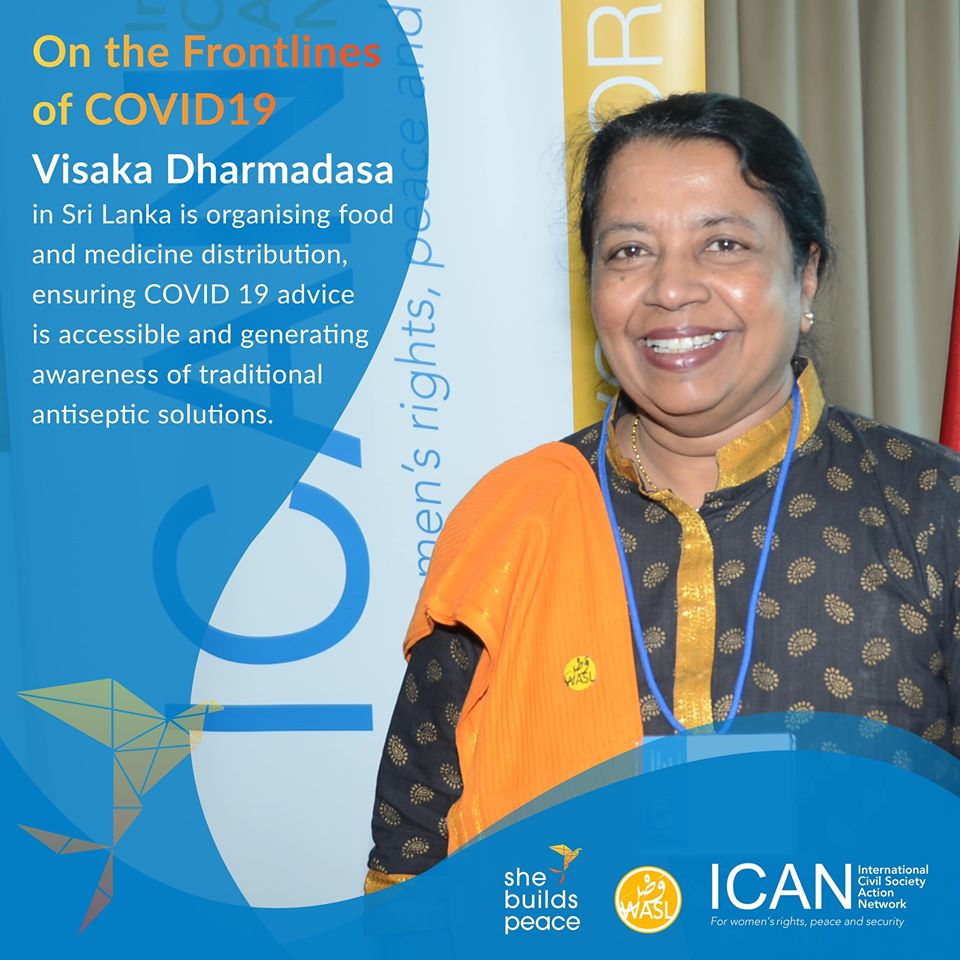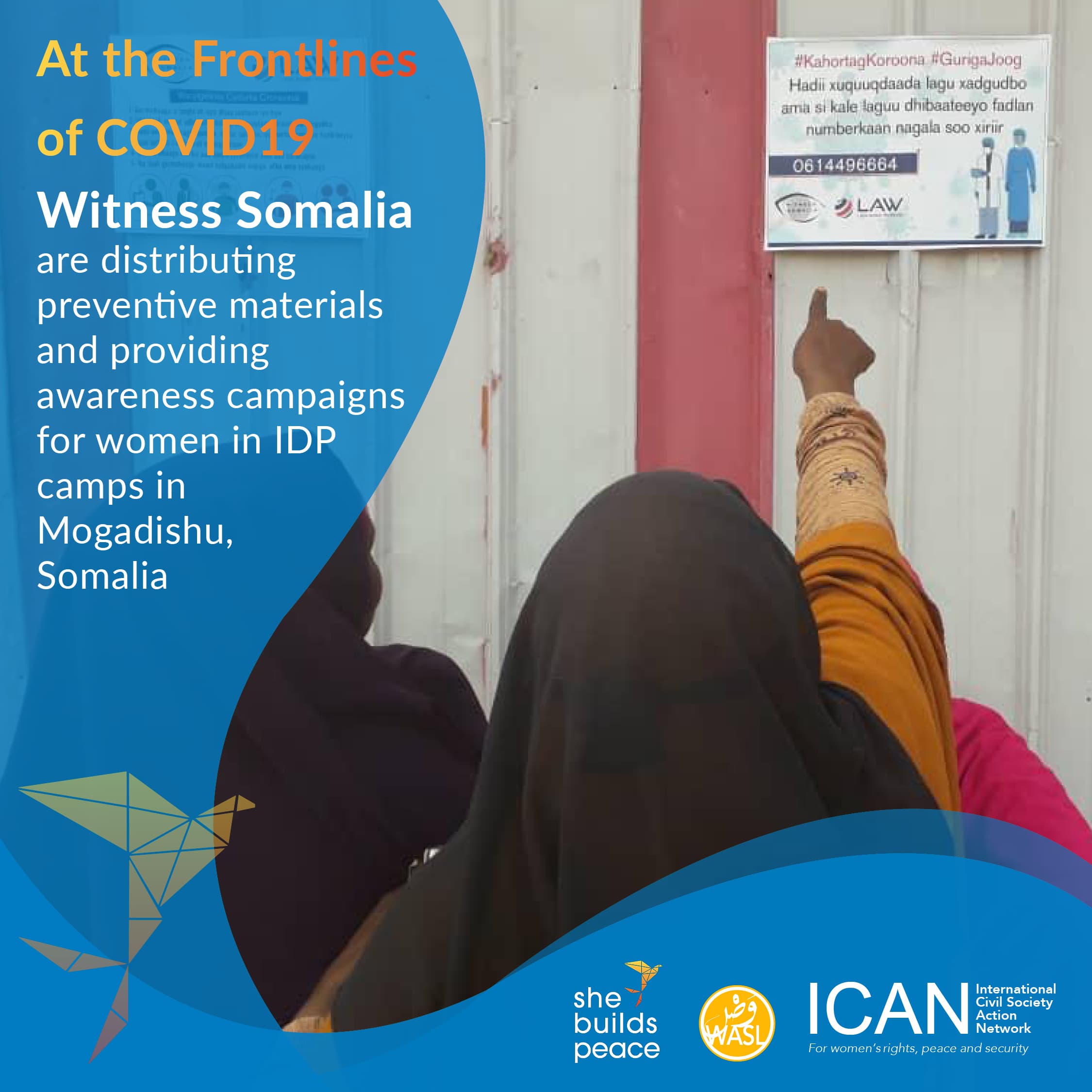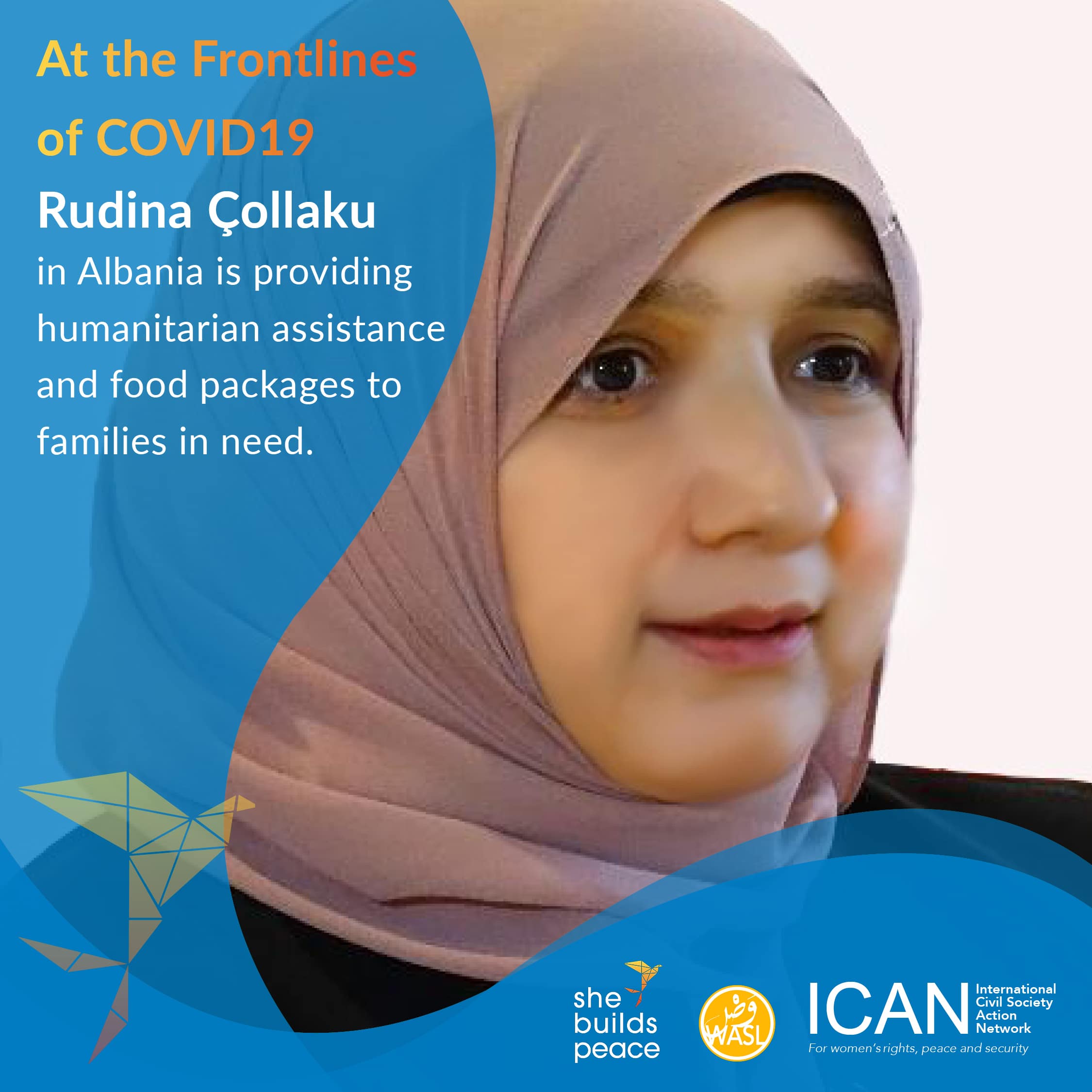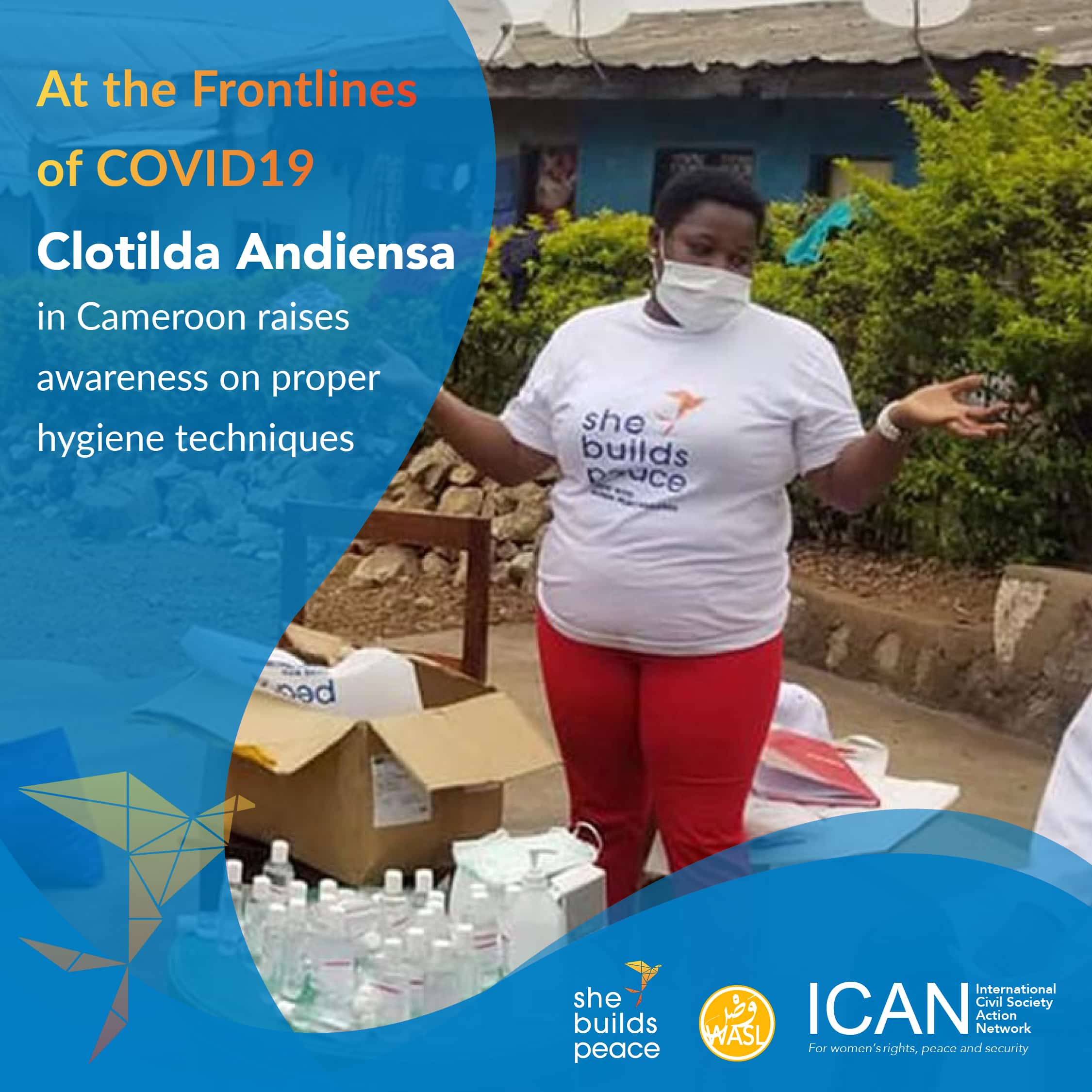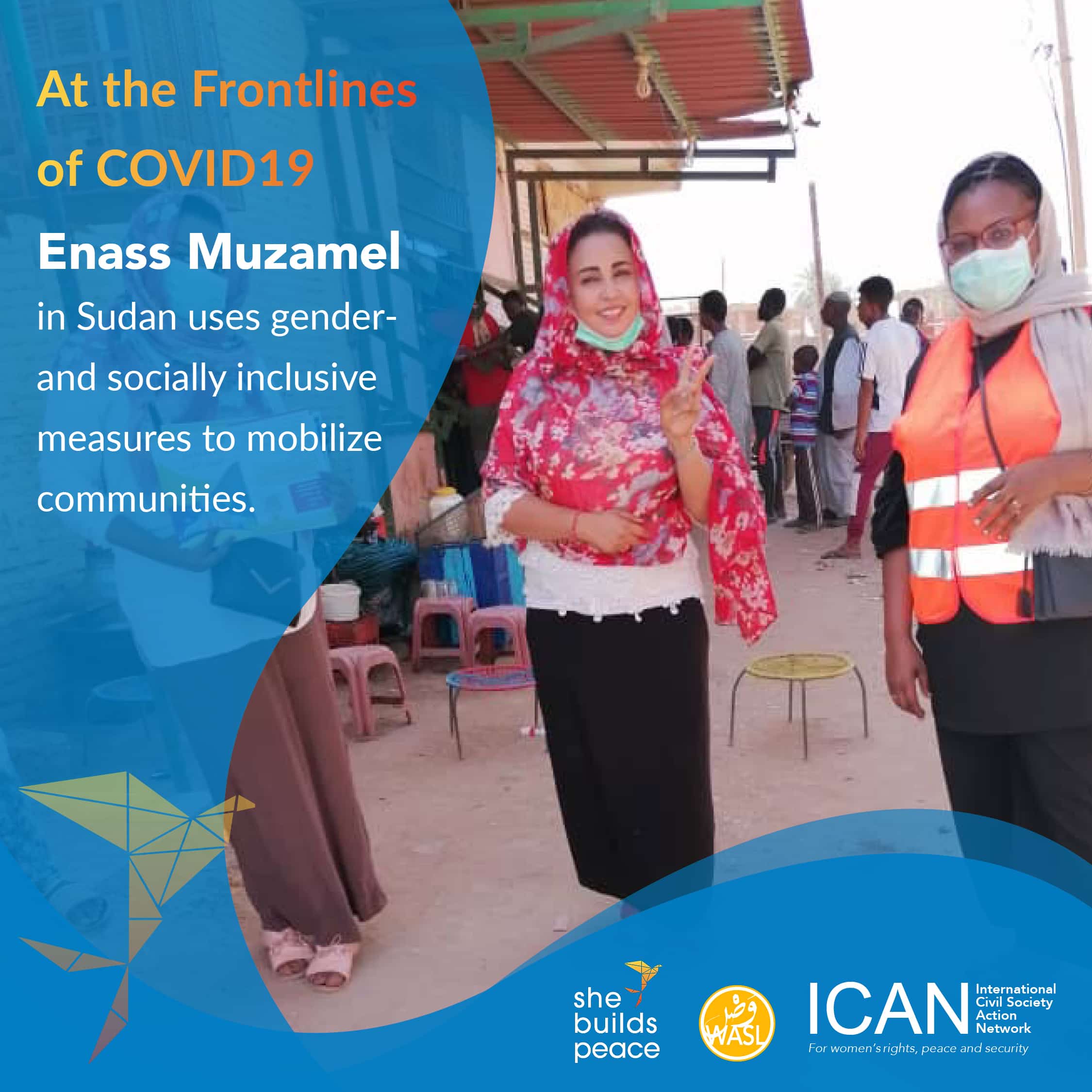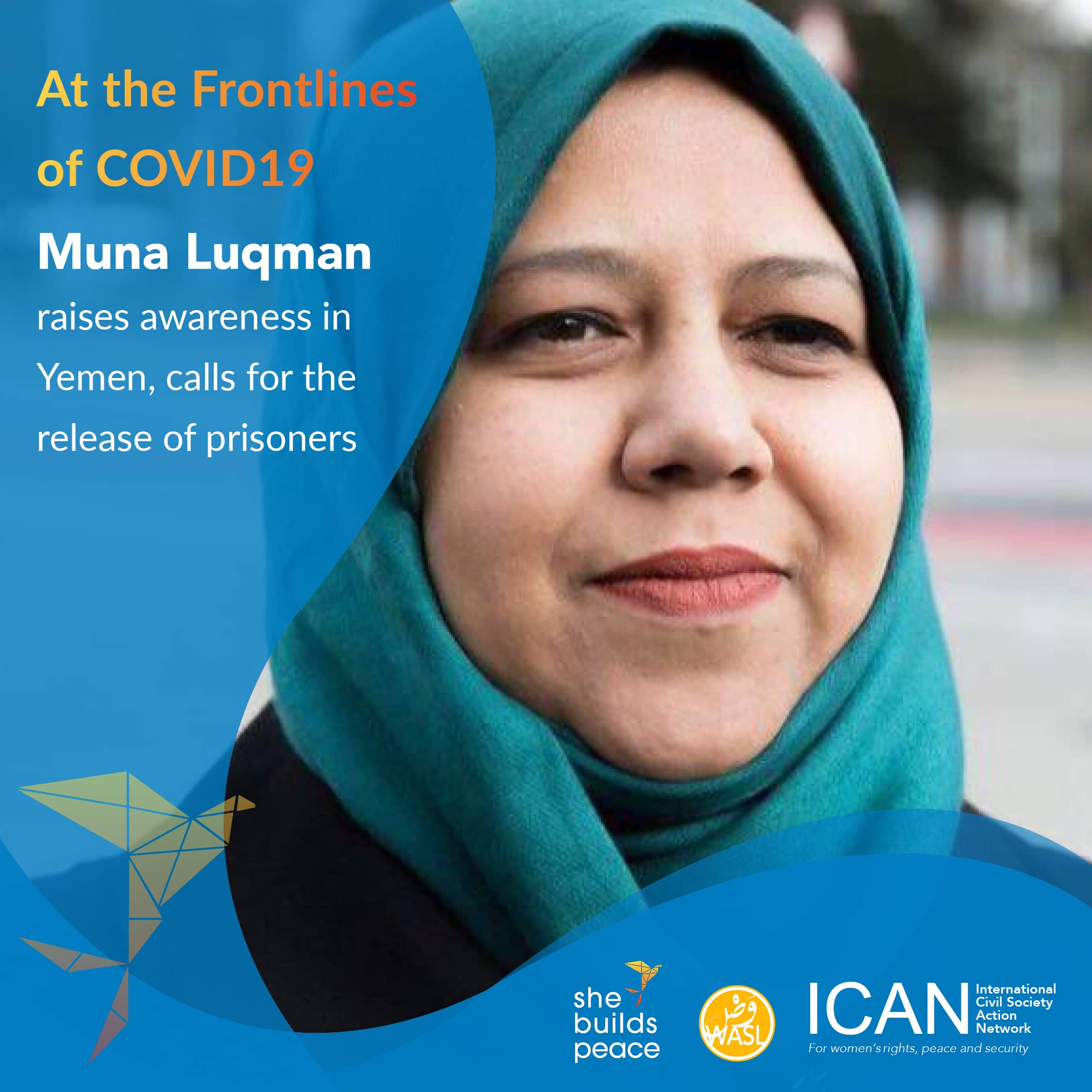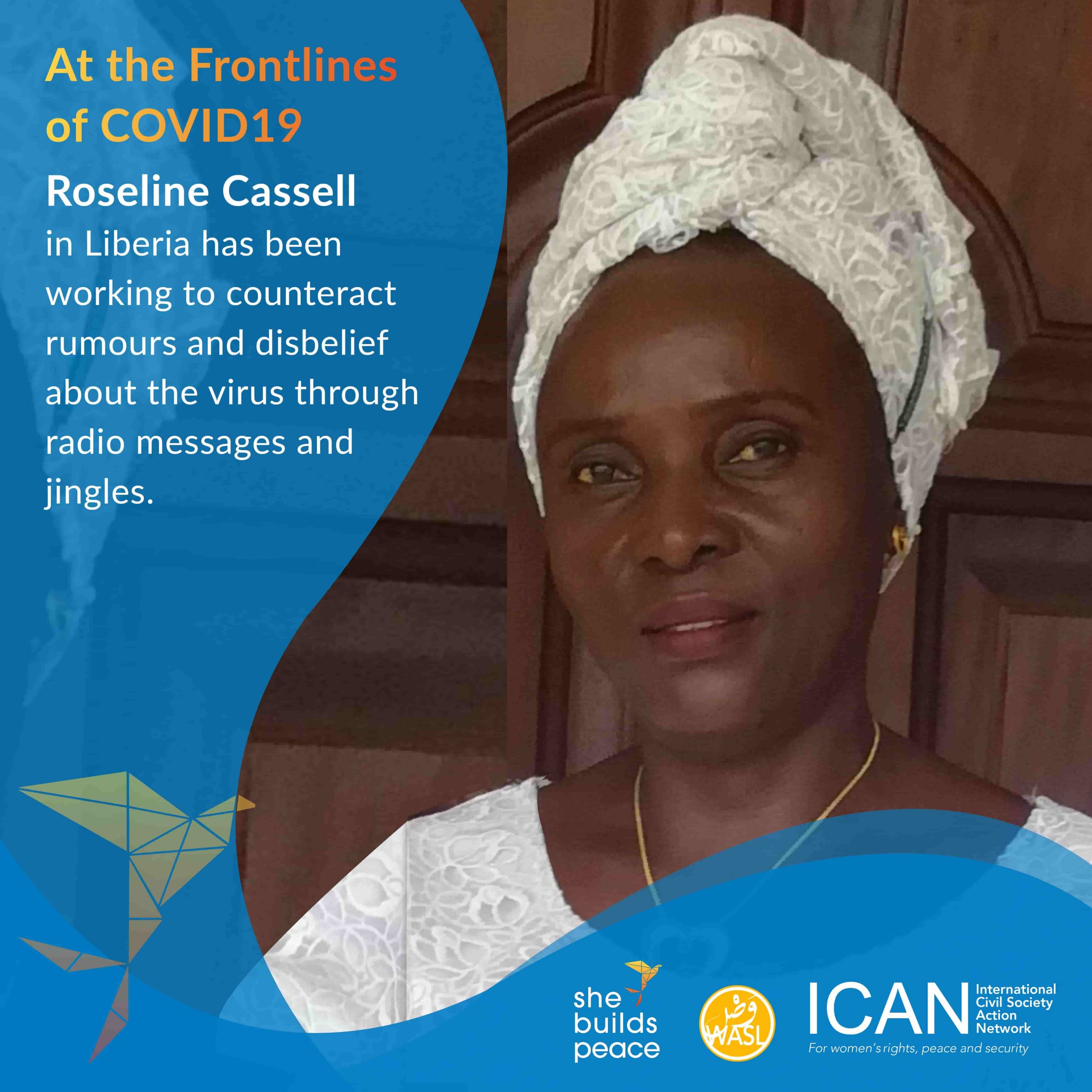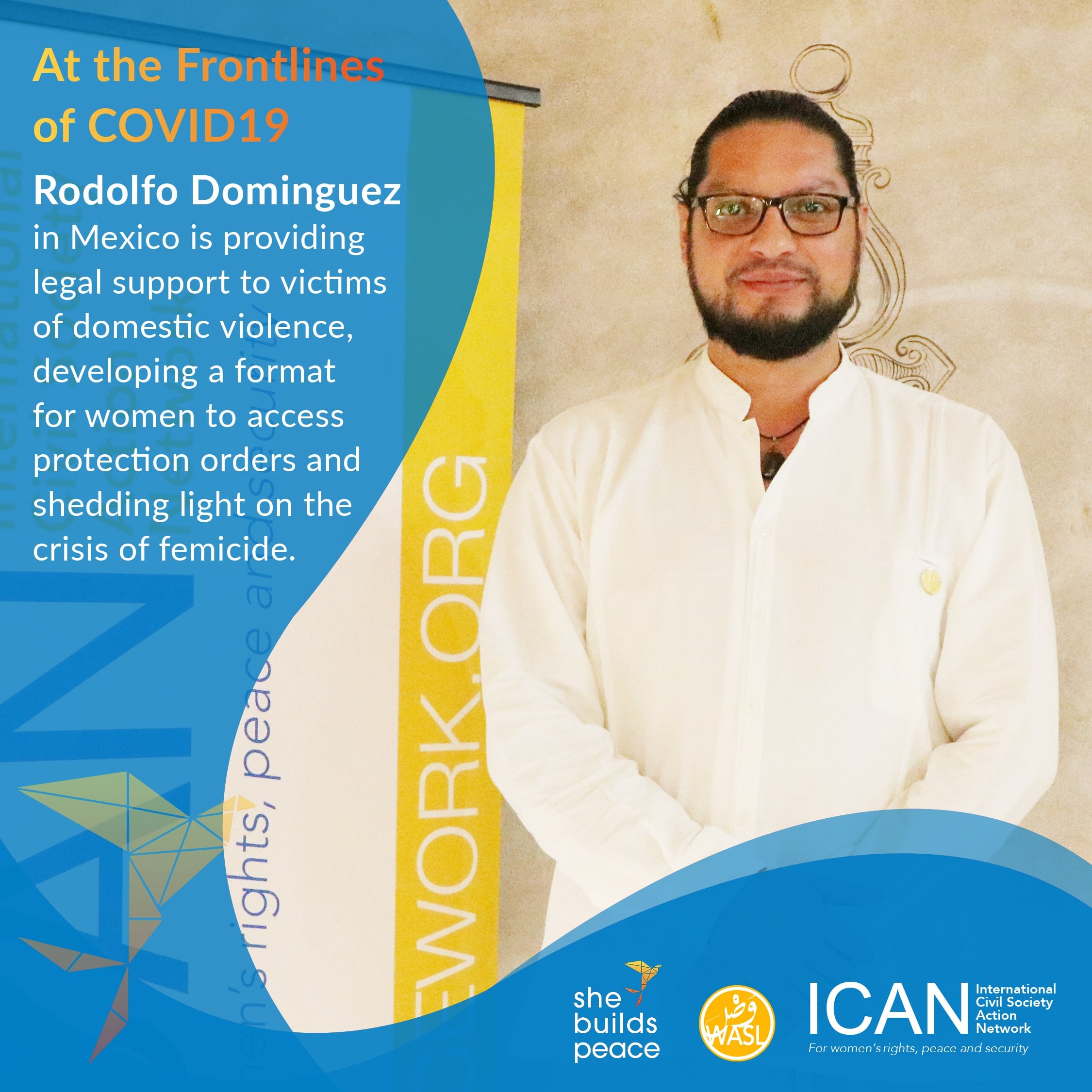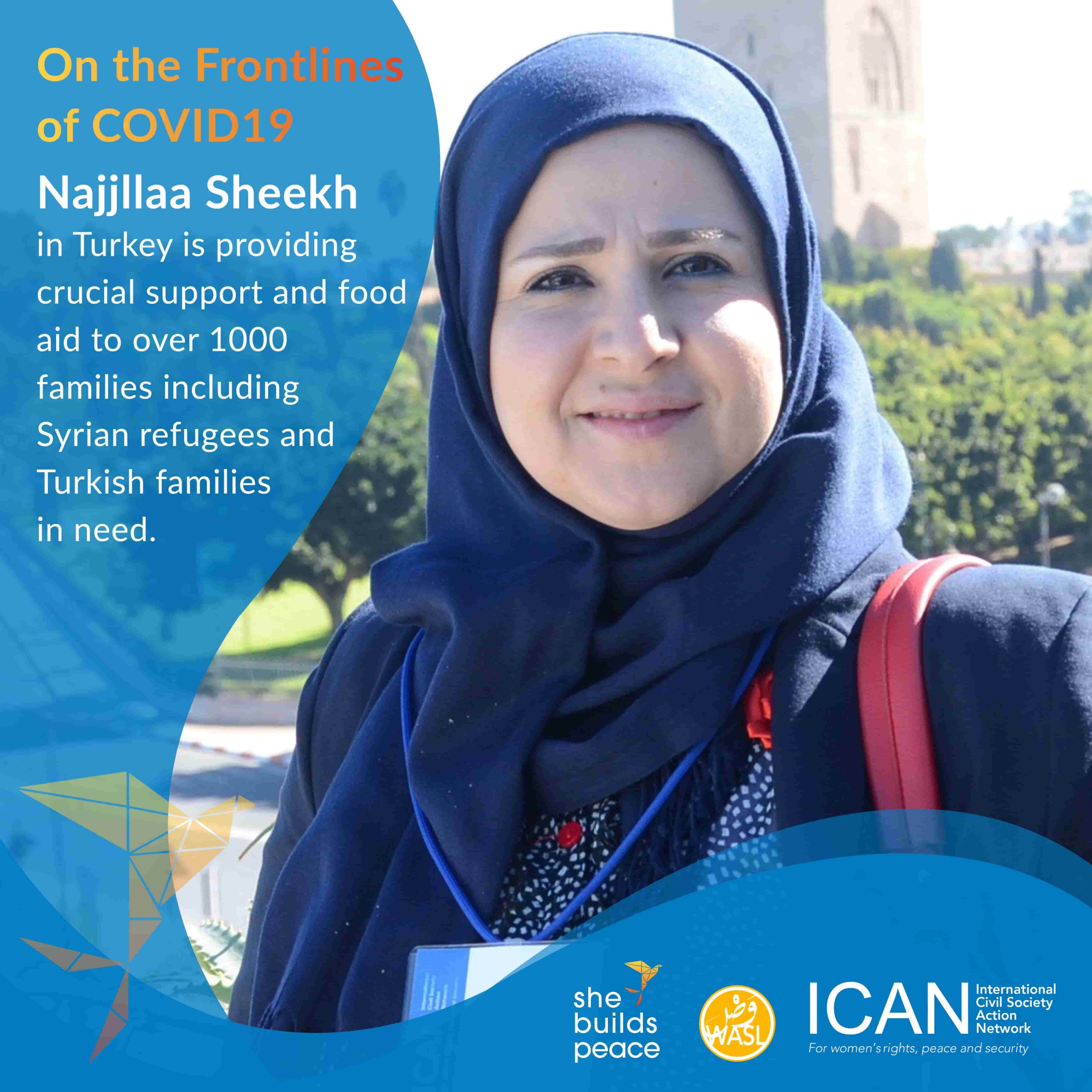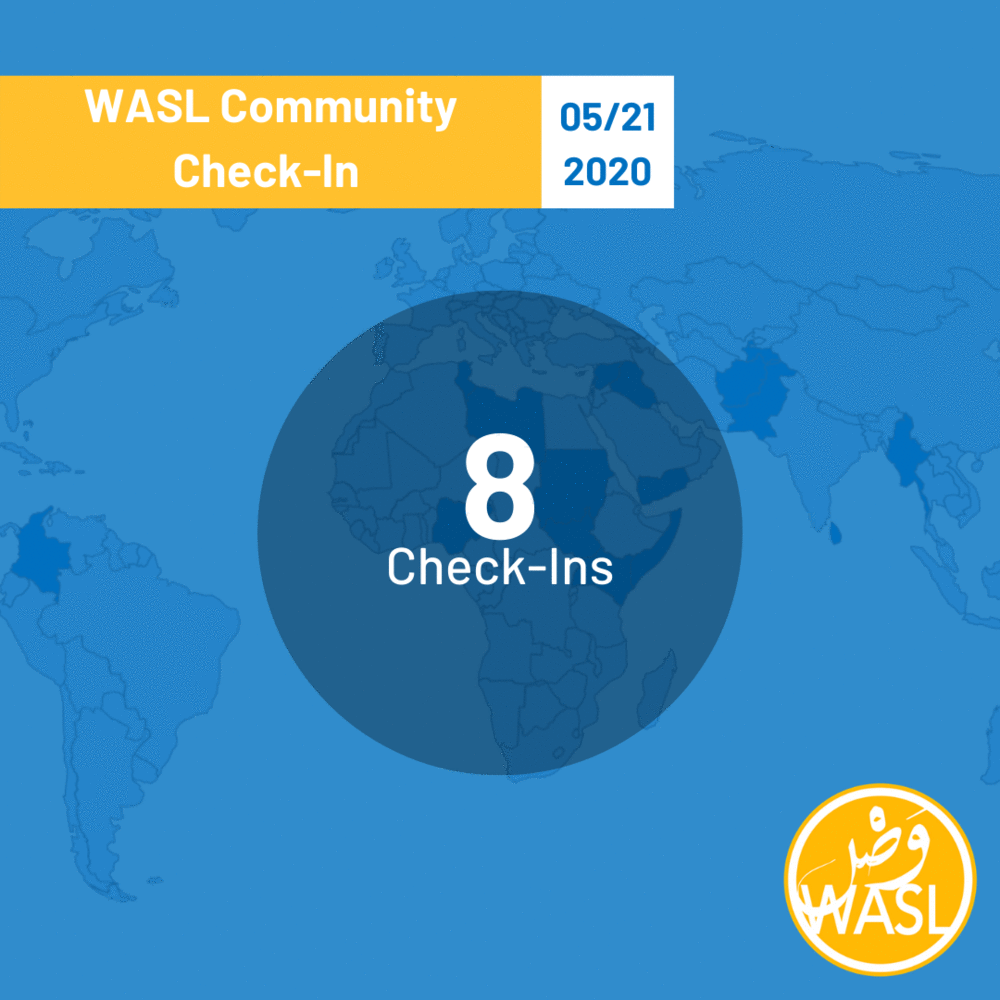 By Lauren Mellows
By Lauren Mellows
As some countries begin to see the light at the end of the tunnel, for many others, respite is not on the horizon. During the eighth virtual meeting of the Women’s Alliance for Security Leadership (WASL) on May 21, 2020, women peacebuilders highlighted some tough truths about worsening poverty, mismanaged Covid-19 funds, tragic events that have been largely ignored, and feelings of desertion by the international community.
As ever, the call was a firm reminder that WASL is a community; partners shared honestly about feelings of exhaustion, offered each other moral support and promised to keep each in their prayers as individuals overcome personal challenges. Adding a brighter note, a wave was exchanged between a small son in the United States and a young grandson in Cameroon, showing the universality of the joy and resilience of childhood even during difficult and unprecedented times.
Rising poverty and lost education
Across the world, women and civil society organisations report the desperate financial situation of communities during Covid-19. Lockdowns, curfews and isolation measures hit people who are dependent on daily wages particularly hard and the International Labour Organization reports that worsening economic conditions in Asia, Latin America and the Arab world threaten to undo decades of progress in reducing global poverty. In Libya and Iraq, WASL partners reveal that people are unable to work, poverty is worsening, and families are struggling to put food on the table. There have been shocking reports from Turkey that desperate Syrian refugees are selling their organs in return for money to pay rent and buy food. This black market exploits a vulnerable population who have fled war and violence and are attempting to rebuild their lives.
In conflict-affected countries, the economic hardships which are amplified by the pandemic add another layer of challenge to the work of peacebuilders. Where the state fails to provide for people’s basic health and economic needs, not only is it is impossible to make peace but the risk of extremist ideologies taking hold is multiplied. A WASL partner in Afghanistan expressed concern about the radicalization of women in her community, whom she fears may take on jihadi attitudes towards “fighting for God”.
“Nothing is good about war, except stopping it” – WASL partner in Syria
WASL partners in Albania, Afghanistan and Sri Lanka voiced concerns over the disruption to education during the coronavirus crisis. The pandemic widens the gap between the children who ‘have’ and those who ‘have not’ because children who are digitally connected can continue to be taught and learn when schools are closed whereas underprivileged children who lack digital facilities are excluded from accessing any education. Canadian Senator Mobina Jaffer also expressed her fears over a generation of girls and young women whose education will be lost because of the crisis.
Lack of resources
The mismanagement of funds allocated to fighting coronavirus is a recurring theme in these weekly virtual meetings. In Libya, a WASL partner claims that while a great deal of money has been assigned by governments and the international community, there is no evidence of it reaching the ground. She asks: “Don’t the people who give the money have the obligation to follow it up?” The same partner expressed concerns about inaccurate coronavirus figures, with a far higher number of people suffering than is being reported.
The inability of funds to reach the communities in need highlights an integral problem with a developmental process:
“The top-down approach does not come down, the trickle-down approach does not trickle down—we have to build community structures” – Sanam Naraghi Anderlini
This crisis has demonstrated that who is on the ground and who has access are what matter. Week after week these calls demonstrate how women peacebuilders are taking on the burden of the pandemic and operating as first responders to the needs of their communities. Not only do they know best what their communities need, but they also have access to remote areas and to marginalized groups such as refugees and IDPs, in a way that external actors do not. To maximize the impact and effectiveness of COVID-19 responses, it is essential for the international community to partner with grassroots initiatives and community-based women and youth networks.
Absence of the international community
“When the world stoops so low as to not say a word when babies are killed in a maternity ward, we know we are in a bad place” – Senator Mobina Jaffer
As global powers and the world’s leading industrial countries struggle to uphold their own social safety nets and economies, attention and the allocation of resources to the rest of the world is disjointed and scant. Media attention in much of the West has been focused on internal matters, meaning horrific abuses of human rights in other parts of the world are going largely unnoticed. In several parts of the world, women peacebuilders felt they were being ignored by the international community. For example, the attack on a Kabul maternity hospital on May 13, in which at least 24 people were killed, including new-borns, mothers and nurses, did not attract the attention and outcry expected of such a heinous crime. In Tripoli on May 19, a 25-year-old woman close to a WASL partner was kidnapped from her home by armed men. The family of the young woman, Wesal Meinna, have started a campaign calling on the United Nations Support Mission in Libya to support them in investigating and securing her release. Our partner in Libya asked why the international community was turning a blind eye to the situation in Tripoli, stating that there is no reliable law enforcement, government or security in the Libyan capital.
“Everyone is silent, and I am desperate, it feels like there is nothing civil society can do. No one is listening to us” – WASL partner in Libya.
ICAN CEO and founder Sanam Naraghi Anderlini echoed the sentiments arguing that “we are seeing a total vacuum on global leadership”. With the failure of the United Nations Security Council to agree upon a Global Ceasefire resolution, she called upon smaller countries to step up and take moral authority. The WASL community reiterated how vital it is that the world does not lose track of the critical issues going on and does not turn its back on vulnerable minority groups. Situations with the Rohingya in Bangladesh, Muslims in Kashmir, and the Uighurs in China all show worrying warning signs.
It is clear that more attention is needed on those at most risk, whether that risk is from inadequate health facilities, continued violent extremism, increased poverty and lack of work, or a combination thereof. Peacebuilders on the ground, especially women peacebuilders, have been carrying much of the weight of caring for their communities and countries. They need the support of the international community to help ensure these conflicts and their crucial work are not forgotten.
Summaries of the rest of the calls can be accessed here
The WASL calls are held weekly on Thursdays at 9am EDT.
For more information please contact Melinda Holmes, WASL Program Director

